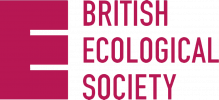© Pint of Science, 2024. All rights reserved.
The best things come in small packages! Although they are invisible to our bare eye, microbes play a multitude of functions in our daily lives. Perhaps even more surprising, some live in the most extreme and hostile environments. They come in all different shapes and can travel very long distances. And as you may know, some have the potential to kill. Join us for a night about microbial ecology: where they live, how they move, and how they infect us. This special event hosted by the British Ecological Society promises to be a big night of small things!
Life on land in Antarctica – the microbes rule!
Professor Pete Convey
(Terrestrial Ecologist)
Pete is a senior research scientist in the Biodiversity, Evolution and Adaptation Team at the British Antarctic Survey, and a leader in the international Antarctic research community. He is a very general ecologist, and has been working in the polar regions for approaching 30 years, focussing on the evolution, adaption and biogeography of life in extreme environments. He will introduce the diversity of life in Antarctic terrestrial ecosystems, and in particular the overwhelming importance of microscopic and microbial life that might normally pass un-noticed.
Killer algae: how the malaria parasite is an alga in disguise
Dr Ellen Nisbet
(Fellow in Biochemistry, University of Cambridge)
Ellen Nisbet is a biochemist at the University of Cambridge. She is interested in the origins and evolution of the malaria parasite. Long ago, its ancestor was a single-celled, photosynthetic alga, closely related to those found today in coral reefs. How did this alga become one of the world's most feared pathogens, killing millions of people? Her research aims to understand how this process occurred.
Long distance relationships between microbes
Dr Otti Croze
(Winton Advanced Research Fellow, Cavendish Laboratory, University of Cambridge)
Can physics help understand microbial communities? Otti will discuss biophysical research on populations of algae and bacteria, able to feed each other nutrients at a distance. The physics, biology and ecology of microbes will be explored, as well as human interactions across these disciplines.
Map data © OpenStreetMap contributors.
